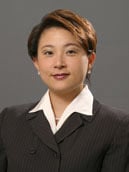Robust and Reliable Organizational Science: Problems and Prospects
-
Steve W. J. Kozlowski
Department of Psychology
Michigan State University
East Lansing, MI 48824
Phone: 517-353-8924Steve W. J. Kozlowski,Ph.D. is a Professor of Organizational Psychology at Michigan State University. He is a recognized authority in the areas of multilevel theory; team leadership and team effectiveness; and learning, training, and adaptation. The goal of his programmatic research is to generate actionable theory, research-based principles, and deployable tools to develop adaptive individuals, teams, and organizations. His research is, or has been, supported by the Agency for Health Research and Quality (AHRQ), the Air Force Office of Scientific Research (AFOSR), the Army Research Institute for the Behavioral and Social Sciences (ARI), the National Aeronautics and Space Administration (NASA), the National Science Foundation (NSF), and the Office of Naval Research (ONR), among others. His research has generated over $10M in funded work. He has produced over 500 articles, books, chapters, reports, and presentations. His work has been cited over 23,000 times (Google Scholar). Dr. Kozlowski is the recipient of the SIOP Distinguished Scientific Contributions Award and the INGRoup McGrath Award for Lifetime Achievement in the Study of Groups. He is Editor for the Oxford Series on Organizational Psychology and Behavior and Editor for the new SIOP/Oxford Organizational Science, Translation, and Practice Series. He is the former Editor-in-Chief and a former Associate Editor for the Journal of Applied Psychology. He is an Editorial Board Member for the Academy of Management Review, the Journal of Management, and Leadership Quarterly, and has served on the Editorial Boards of the Academy of Management Journal, Human Factors, the Journal of Applied Psychology, and Organizational Behavior and Human Decision Processes. He is a Fellow of the American Psychological Association, the Association for Psychological Science, the International Association for Applied Psychology, and the Society for Industrial and Organizational Psychology (SIOP). He was President of SIOP (2015-2016) and is the SIOP Research and Science Officer (2017-2020). Dr. Kozlowski received his B.A. in psychology from the University of Rhode Island, and his M.S. and Ph.D. degrees in organizational psychology from The Pennsylvania State University.
Abstract:
My goal in this presentation is to consider the focal problem – promoting robust and reliable organizational science – with the broader context within which it is embedded. In my view, there are three core factors that define the problem context which include the nature of organizational science, scientific publishing, and academic reward systems. I first provide a concise sketch of each of these domains. Next, I delve into contributing issues in more depth within each domain. Finally, I offer some suggestions that may mitigate the issues and help to promote a more rigorous and reliable organizational science.
Digital Reader: Resources Recommended by the Speaker:
- Grand, J. A., Braun, M. T., Kuljanin, G., Kozlowski, S. W. J., & Chao, G. T. (2016). The dynamics of team cognition: A process-oriented theory of knowledge emergence in teams [Monograph]. Journal of Applied Psychology, 101, 1353-1385.
- Johns, G. (2006). The essential impact of context on organizational behavior. Academy of Management Review, 31, 386-408.
- Kerr, S. (1975). On the folly of rewarding A, while hoping for B. Academy of Management Journal, 18, 769-783.
- Kozlowski, S. W. J. (2015). Advancing research on team process dynamics: Theoretical, methodological, and measurement considerations. Organizational Psychology Review, 5,270-299.
- Kozlowski, S. W. J., & Chao, G. T. (in press). Unpacking team process dynamics and emergent phenomena: Challenges, conceptual advances, and innovative methods. American Psychologist.
- Kozlowski, S. W. J., Chao, G. T., Chang, C.- H., & Fernandez, R. (2015). Team dynamics: Using “big data” to advance the science of team effectiveness. In S. Tonidandel, E. King, & J. Cortina (Eds.), Big data at work: The data science revolution and organizational psychology(pp. 272-309). New York, NY: Routledge Academic.
- Kozlowski, S. W. J., Chao, G. T., Grand, J. A., Braun, M. T., & Kuljanin, G. (2013). Advancing multilevel research design: Capturing the dynamics of emergence. Organizational Research Methods, 16, 581-615.
- Kozlowski, S. W. J., Chao, G. T., Grand, J. A., Braun, M. T., & Kuljanin, G. (2016). Capturing the multilevel dynamics of emergence: Computational modeling, simulation, and virtual experimentation. Organizational Psychology Review, 6, 3-33.
- Kozlowski, S. W. J., Chen, G., & Salas, E. (2017). One hundred years of the Journal of Applied Psychology: Background, evolution, and scientific trends. Journal of Applied Psychology, 102, 237-253.
- Larivière, V., Haustein, S., & Mongeon, P. (2015). The oligopoly of academic publishers in the digital era. PLOS ONE, 10(6), 1-15. DOI: 10.1371/journal.pone.0127502
- Lawler, E. E., & Rhode, J. G. (1976). Information and control in organizations. Goodyear Publishing.
- Salas, E., Kozlowski, S. W. J., & Chen, G. (2017). A century of progress in industrial and organizational psychology: Discoveries and the next century. Journal of Applied Psychology, 102, 589-598.

